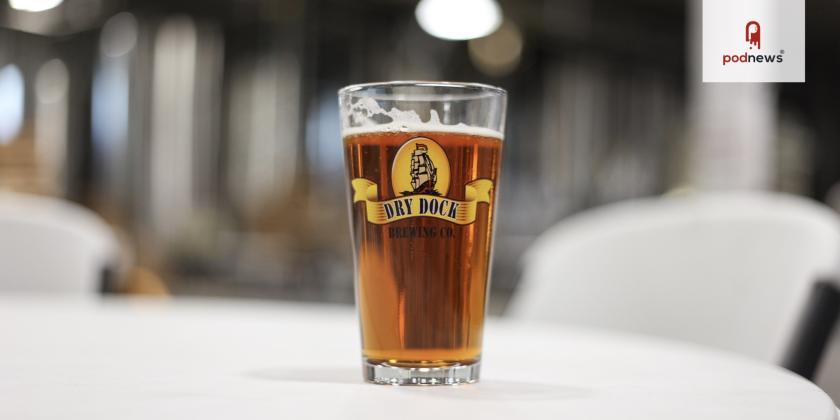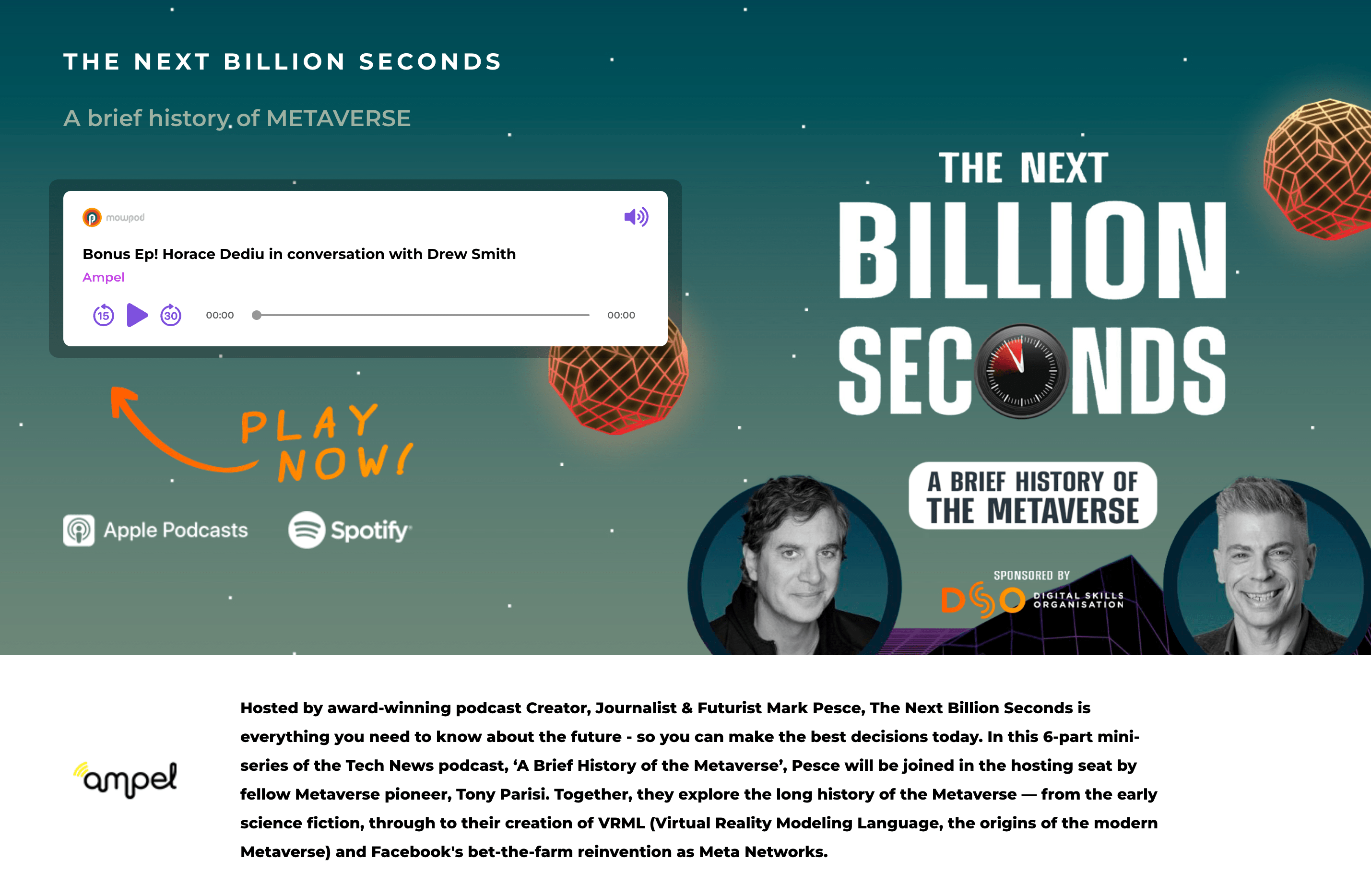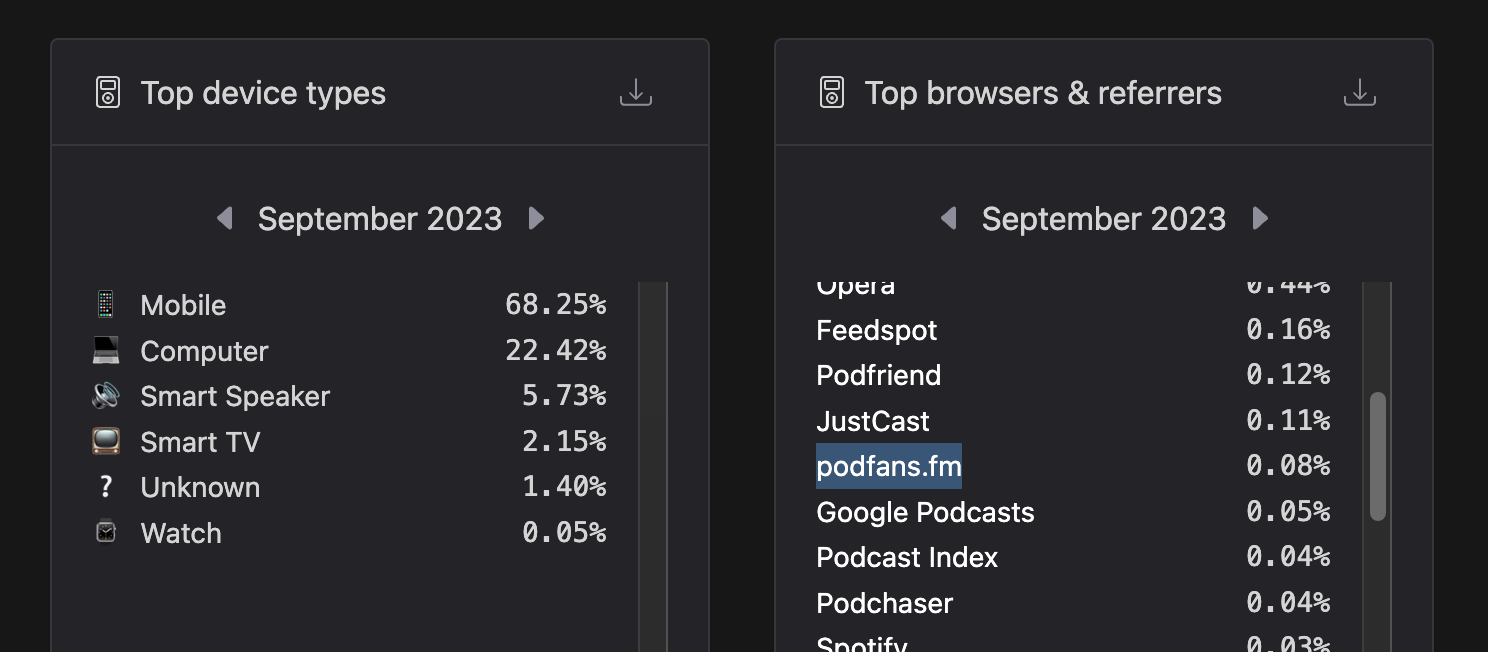
MowPod's podcast promotion tools: tales from the bar

This article is at least a year old
This article is out of date and has now been archived. It should not be linked-to from our page indexes. We’re leaving it here as a historical resource.
If I’ve learnt anything over the past six years of writing this newsletter, it’s this: if you want a good story, go to the bar at Podcast Movement.
All the talk at the bar in Denver this year (which boasts “Colorado’s biggest TV”) was about a company called MowPod, which sets out to promote podcasts to new audiences. Over beers, people made all kinds of accusations about the company’s tools - prefaced by “this is all off the record, but…”.
Back in January 2018, I uncovered that iHeartMedia had made it to #1 in the rankers without those podcasts ever being actually heard; a revelation that caused Podtrac to remove all iHeart podcasts from its ranker for a period. So, I’m always keen to find more stories like this, if true.
But, those keen to accuse MowPod of shady behaviour over a pint were less keen to elaborate later in a sober email. “As soon as we get back to the office we’re gonna block these guys” turned into “I do not have enough info at the moment to comment” from one person; another just told me that they’d heard rumours but nothing more. The certainty at the bar disappeared as quickly as the beer.
So - what was it all about?
How does MowPod work?
Back in July, Podnews carried a press release from MowPod which shows in a graphic how MowPod works.
I spoke to a former MowPod client, who took me through how the service worked, sending a number of screenshots.
In September, in Kuala Lumpur, Malaysia, I met with MowPod’s CEO Mike Wiston to further understand the company’s process.
MowPod promotes podcasts by buying display ads on websites. The display ads are bought programmatically, and target the right audience for a specific podcast. Here’s one.

The ads look like any other banner ads, with a graphic of the podcast, a description of it, and a button marked “LISTEN NOW”.
When clicked, the ads link to a web player that is hosted by MowPod. Here’s a typical web player, hosted on MowPod’s site.

In my analysis of MowPod’s player page, it appears to automatically play the audio of the podcast on page-load. Auto-loading audio is normally against IAB guidelines: but the only time this web player ever loads is if you’ve clicked on an ad banner saying “LISTEN NOW”. So it seems appropriate in this case: the button said “LISTEN NOW”, you click on it, and it plays.
MowPod also have a detailed brand safety assurance monitoring the websites it advertises on.
This appears, therefore, to be a genuine play, in response to a genuine user request to hear the show.
Analytics
It wasn’t just talk at the bar in Denver. Bloomberg reported a closed-door meeting at Podcast Movement by Libsyn on how to spot fraud. The article said that Libsyn commented (my bold):
Most of the tips are pretty wonky, but among them is looking for fishy traffic sources, like a majority of downloads coming from browsers rather than the usual podcast apps, or spotting unusual growth patterns from episode to episode.
All the plays from a service like MowPod will appear to come from a web browser - because it’s playing in a web browser. That will certainly produce the possibility of shows promoted in this way having an unusual amount of downloads from browsers. If you buy a short promotion from MowPod, it’s likely you’ll also see “unusual growth patterns” as well.
However, all audio plays should include mowpod.com in the referrer field. Analytics tools can use this to spot websites that have embedded players like this; though few analytics services use this data.

MowPod also adds _from=mowpod in the audio URL - another method that podcast analytics companies can use to monitor the effectiveness of their activity with MowPod.
OP3, an open podcast analytics service, supports the referrer, and as a result, websites like Podfans, which plays podcasts in the web browser, appear in our stats like any other platform.

All web traffic isn’t created equal, just as all podcast player traffic isn’t created equal. Players in embedded controls like this are sending all the information they need to be measured correctly and transparently.
Given Libsyn held this “closed-doors” meeting talking about fraud and highlighting web browsers, I asked Libsyn whether they are able to correctly attribute MowPod plays by using the referrer or the _from parameter. Libsyn didn’t directly answer the question: telling me that they were “committed to ensuring the integrity of our platform and the trust of our podcasters, advertisers, and listeners”.
I assume that Libsyn’s customers cannot, therefore, measure these plays correctly as coming from MowPod. I shared this article with Libsyn, and asked if they had anything to say about MowPod, and they told me that “as a matter of company policy, we don’t comment on other companies” - perhaps a new policy after previous public comments led to a contract being terminated.
But MowPod, of course, keeps stats for its clients. MowPod sent me this:

This shows an advertiser got 0.42% click-through from their ads, resulting in 11,715 additional plays.
A former MowPod client I spoke with also shared their results. They were similar: a clickthrough rate of around 0.33%, leading to around 3,850 additional plays - they appear to have spent about half the budget.
MowPod also tells me that listeners don’t continue to listen in the browser, either. A service like MowPod helps people trial shows they’re unfamiliar with; but everyone has a preferred app which they then use, according to customer data. Around 3-5% go on to listen to more shows, I’m told (so, the 3,850 additional plays for the client I spoke to would have led to about 150 either subscribing or listening to the back catalogue.) In the advertising world, this is a “phenomenal” conversion, I’m told.
In conclusion: are these companies OK?
Edison Research’s Infinite Dial 2023 says that 58% of Americans aged 12+ did not listen to a podcast in the last month. So, advertising a podcast by using targeted website banner advertising appears to be an entirely worthwhile exercise - and good for the industry.
A successful campaign will mean that the number of plays in a web browser is unusually large: because this is how this product works. But it’s all measurable - if the analytics tools are set up correctly.
There are lots of companies promising podcast promotion. I’d like to learn more about many of them. But, in my careful analysis of MowPod’s “Boost” product, I can’t see any reason to criticise it - much less, accuse it of the kind of behaviour I was hearing at the bar.
If, of course, you believe differently, I’d love to know. editor@podnews.net will find me. And mine’s a pint. Off the record.
Both MowPod and Libsyn are gold supporters of this website.

































































































